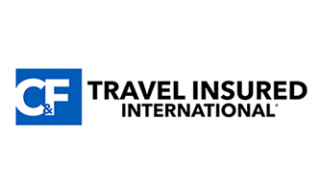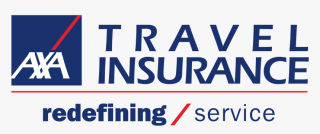Can I Get Cruise Insurance Through Someone Else's Car
Note: The coronavirus pandemic has disrupted existing and future travel plans, and turned greater attention to trip insurance. Read our take on specific information concerning travel insurance and COVID-19 , or see our comprehensive guide to managing your finances during COVID-19.
Booking travel always carries some degree of uncertainty. Travel insurance provides a safety net so you can step out with confidence. Insurance is designed to cover the big financial risks you don't want to bear alone. You may not need travel insurance for inexpensive trips, but it can provide a sense of security when you prepay for pricey reservations, a big international trip or travel during the COVID-era, which can be unpredictable.
According to insurance comparison site SquareMouth, for the 12-months ended April 2021, travelers spent an average of $234 on travel insurance for trips ranging from two to three weeks, representing just over 6% of the average trip cost.
There are many different policies available, and selecting the right plan depends on your particular circumstances. Follow along as we take a look at the most common travel insurance needs, determine what factors affect the cost, present different travel insurance products, show you how to get covered.
What travel insurance covers
Depending on the type of coverage you're looking for, the chart below will help you determine what to look for when selecting a policy:
| If you want: | Include this in your travel insurance policy: |
|---|---|
| Payment of medical expenses if you get sick or injured on a trip and need emergency care that's not covered by your regular health insurance plan. | Travel medical plan |
| To be taken to the nearest hospital or flown home if necessary when you're injured or you get sick on a trip. | Emergency evacuation and repatriation |
| Reimbursement of nonrefundable reservations if you get sick and have to cancel or end a trip early; reimbursement if you incur extra costs (e.g., lodging) due to a delay by the airline or other carrier. | Trip cancellation, interruption and delay |
| Reimbursement of nonrefundable reservations no matter why you cancel a trip. | "Cancel for any reason" coverage |
| Payment for lost, stolen or damaged baggage. | Baggage and personal belongings |
| Help finding a lawyer abroad. | 24-hour assistance services |
| Payment for rental car damage. | Car rental collision insurance |
Depending on the policy, travel insurance reimburses you or offers services when something goes awry. There's even coverage for the worst-case scenario: if you die in an accident while traveling. Accidental death coverage pays your beneficiary a lump sum in that case.
Before you buy, take a little time to get familiar with different types of travel insurance products, how it's priced, and what it covers and excludes. If you're traveling during these uncertain times, you'll want to make sure that the policy you select covers coronavirus-related emergencies. Usually, the more thorough the coverage, the more it will cost.
As part of our annual Best-Of Awards, we evaluated many different travel insurance plans and providers to help you pick the coverage that works best for your trip. Check out our findings here: Best Travel Insurance of 2021 .
What affects travel insurance cost
According to SquareMouth, for the 12-month period ending April 2021, a comprehensive travel insurance plan averaged 5.9% (domestic trip) and 6.6% (international trip) of the cost of a trip. Generally, the price will vary depending on:
-
Length and cost of the trip: The longer and more expensive the trip, the higher the policy cost.
-
Cost of local health care: High health-care costs in your destination can drive up the price of trip insurance.
-
Medical conditions you want covered: Conditions you already have will increase the cost of travel insurance coverage.
-
Amount and breadth of coverage: The more risks a policy covers, the more it will cost.
-
Your age: Generally the older you are, the higher the price.
-
Any optional supplement you add to your policy : Cancel For Any Reason , Interrupt For Any Reason and more.
Keep these factors in mind when considering different travel insurance options.
Different types of travel insurance
You'll find a wide selection of travel protection plans when you shop for a policy. Typically, travel insurance is sold as a package, known as a comprehensive plan, which includes a variety of coverage. Some insurers and comparison sites let you customize a policy by choosing types of coverage a la carte. For example, TravelInsurance.com is a comparison site that provides quotes from different providers.
Here are seven of the most common types of coverage:
1. Travel medical insurance
These plans provide health insurance while you're away from home. Although in some ways these policies work like traditional health plans, generally you cannot use travel health insurance for routine medical events. For example, a routine medical checkup is usually not covered. In addition, these policies often include limitations on coverage and exclusions for pre-existing conditions.
Although most travel insurance plans cover many recreational activities, such as skiing and horseback riding, they often exclude adventure sports, such as skydiving or parasailing, or competition in organized sporting events. You may need to buy a special travel policy designed for adventure or competitive sports.
International travel insurance
Most likely, your U.S.-based medical insurance will not work while you're traveling internationally, and Medicare does not provide any coverage once you leave the United States outside of a few very specific exemptions. If you plan on traveling abroad, purchasing travel medical insurance could make a lot of sense.
2. Trip cancellation, interruption and delay
Trip cancellation coverage reimburses you for prepaid, nonrefundable expenses if the tour operator goes out of business or you have to cancel the trip for one of the covered reasons outlined in the policy, such as:
-
Your own illness.
-
The illness or death of a family member who's not traveling with you.
-
Natural disasters.
Trip interruption insurance covers the nonrefundable cost of the unused portion of the trip if it is interrupted due to a reason outlined in the policy.
Many package policies cover all three. These policies are different from the cancellation waivers that cruise lines and tour operators offer, the Insurance Information Institute says. Waivers are cheap, ranging from $40 to $60, and often include restrictions. For example, according to the institute, waivers might not refund your money if you cancel immediately before departure. Waivers are technically not insurance policies.
Some companies offer additional layers of coverage at extra cost. "Cancel For Any Reason" coverage will reimburse a large part of the trip cost, no matter why you back out. And some companies let you pay extra to cover pre-existing conditions if you cancel for medical reasons.
3. Baggage and personal belongings
This coverage reimburses you for baggage and personal belongings that are lost, stolen or damaged during the trip. Some plans also reimburse you for extra expenses if you experience a baggage delay for more than a certain period, such as 12 hours.
Your renters or homeowners insurance may cover personal belongings while you are traveling. It's best to review your homeowners insurance policy to determine the level of coverage it provides so you do not end up paying for a benefit you already have.
4. Emergency medical assistance, evacuation and repatriation
This coverage pays medical expenses if you get sick or injured on a trip . Medical evacuation coverage pays for transporting you to the nearest hospital, and medical repatriation pays for flying you to your home country.
5. 24-hour assistance
This service is included with many package plans. The insurer provides a 24-hour hotline that you can call when you need help, such as booking a flight after a missed connection, finding lost luggage, or locating a doctor or lawyer.
Most travel insurers cover a wide array of services, but the specific options vary. Some plans include concierge services, providing help with restaurant referrals, tee time reservations and more. Many services also offer information before the trip, such as required vaccinations. The only way to know what's included is to read the policy.
6. Accidental death and dismemberment insurance
This coverage pays a lump sum to your beneficiary, such as a family member, if you die in an accident while on the trip. Accidental death and dismemberment insurance policies also pay a portion of the sum to you if you lose a hand, foot, limb, eyesight, speech or hearing. Some plans apply only to accidental death in a plane.
Nerdy tip: This coverage may be duplicative if you already have sufficient life insurance, which pays out whether you die in an accident or from an illness. You may also already have accidental death and dismemberment insurance through work, so it's best to check your policies to ensure you're not overpaying.
7. Rental car coverage
This pays for repairing your rental car if it's damaged in a wreck, by vandals or in a natural disaster. The coverage doesn't include liability insurance, which pays for damage to other vehicles or for the medical treatment of others if you cause an accident and are held responsible.
Ask your car insurance company whether your policy will cover you when renting cars on the trip. U.S. car insurance policies generally don't cover you when driving in other countries, except Canada.
Car insurance requirements are complex because they vary among countries. You can usually purchase liability insurance from the rental car company. Learn about car insurance requirements by searching for auto insurance by country on the U.S. Embassy website .
How to get travel insurance
When you're considering travel insurance for an upcoming trip, you'll be happy to know that some components of your trip may already be covered. For example, when you book a trip with your credit card , depending on the card you use, you may already receive trip cancellation and interruption coverage .
So when deciding on what level of coverage you need, check to see what you already get with your credit card. Then, decide what additional coverage you would like. Commonly, travel medical protection is not included with your credit card, so if you're looking for more comprehensive coverage, it makes sense to purchase a general trip insurance policy.
Below, we include four ways to obtain travel insurance, along with the pros and cons of each option.
Credit cards
Some credit cards offer trip cancellation and rental car insurance if you use the card to book the trip or car.
Pros: Coverage is free.
Cons: You can't customize the insurance to meet your needs. Most credit cards offer secondary car rental insurance, which pays for the costs not covered by your regular car insurance plan.
Travel agents and travel reservation sites
You can buy travel insurance when you book your flight, hotel and car rental.
Pros: Buying is as quick and easy as clicking "yes" when you book reservations. Coverage is inexpensive.
Cons: You can't customize the coverage.
Travel insurance companies
You can purchase travel insurance directly from an insurance provider.
Pros: You can choose a policy that fits your needs. Many travel insurer websites also offer information to help you understand the coverage.
Cons: You'll need to go to multiple websites to compare coverage and pricing.
Travel insurance comparison sites
You can compare different policies and review quotes at once based on the trip search criteria you've input into the search form.
Pros: You can choose a policy that fits your needs and compare policies and pricing in one place.
Cons: Comparing multiple policies takes time.
Buy the best travel insurance for you
Comparing travel insurance policies from different providers is your best bet for finding a policy customized to your needs and at the price you want. We've compiled a list of travel insurance providers and comparison sites to help you shop for the best quote.
Travel insurance comparison sites
If you don't know which provider to go with, it makes sense to browse a list of plans on a comparison site. These sites will often include plans from the best travel insurance companies along with customer reviews. Below, we've included five popular insurance comparison sites:
SquareMouth

-
Compare plans from more than 30 providers.
-
Over 86,000 customer reviews of insurers.
-
Under its Zero Complaint Guarantee, SquareMouth (a NerdWallet partner) will remove a provider if any customer complaint isn't resolved to its satisfaction.
-
Has a filter option to see policies that provide COVID-coverage.
TravelInsurance.com

-
Compare plans from 13 providers.
-
See good and poor customer ratings and reviews for each insurer when you receive quotes.
-
"Learning Center" includes travel insurance articles and travel tips, including important how-to information.
-
Quotes provided from each provider include a link to COVID-19 FAQs, making it easy for customers to review what's covered or not.
InsureMyTrip

-
Compare plans from more than two dozen providers.
-
More than 70,000 customer reviews.
-
"Anytime Advocates" help customers navigate the claim process and will work on behalf of the customer to help with appealing a denied claim.
-
Includes a link to plans that offer COVID coverage.
Insubuy

-
Compare plans from 11 providers.
-
Search coverage by sporting activity, including ground, air and water sports.
-
Many types of plans available for students, visiting family members, new immigrants, those seeking COVID quarantine coverage and more.
AardY

-
Compare different insurance plans from 35 providers.
-
Over 5,600 customer reviews on Trustpilot, with an average 4.9 stars out of five.
-
Formerly known as AardvarkCompare, AARDY includes a "Travel Insurance 101" learning center to help customers understand various policies and benefits.
-
Quote search results page includes COVID-coverage highlighted in a different color to make it easier for customers to review related limits.
Top travel insurance companies & reviews
If you already have an insurer in mind or just want to learn more about some of the best travel insurance companies, take a look at our top 10 list below. Whether you're looking for an international travel insurance plan, emergency medical care, COVID coverage or a policy that includes extreme sports, these providers have you covered.
Allianz Global Assistance

-
Annual and single-trip plans.
-
Plans available for international and domestic trips.
-
Stand-alone rental-car damage product available.
Travel Guard by AIG

-
Four levels of comprehensive plans and a build-your-own customizable plan.
-
Flight accident insurance, medical evacuation plan and annual plans available.
-
Plan available for business travelers.
USI Affinity Travel Insurance Services

-
Search comprehensive plan types by policy name, insurance needs and traveler type.
-
Medical and evacuation plans for international travel.
-
One annual plan with two levels of coverage to choose from.
Travel Insured International

-
Comprehensive and medical-only plans.
-
Flight plans include coverage for missed and canceled flights and lost or stolen baggage.
World Nomads

-
Comprehensive international travel insurance plans.
-
Coverage available for adventure activities, such as trekking, mountain biking and scuba diving.
-
Coverage for cameras, laptops and phones.
Berkshire Hathaway Travel Protection

-
Three comprehensive plans offer cancellation, emergency medical coverage and emergency travel assistance.
-
Two of the plans offer compensation for missed connections and higher thresholds for lost baggage.
-
Coverage can be customized with add-ons like adventure sports coverage, car rental collision and more.
Travelex Insurance Services

-
Two comprehensive plans available.
-
Coverage can be customized.
-
Two flight insurance plans available.
Seven Corners

-
Comprehensive plans for U.S. residents and foreigners, including visitors and immigrants traveling to the U.S.
-
Annual, medical-only and student plans are available.
-
"Dogtag" plan for extreme sports, which comes with a wearable metal insurance ID tag.
IMG

-
Special medical insurance for ship captains and crew members, international students and missionaries.
-
Coverage for adventure travel.
-
Trip cancellation plans.
-
Search results page indicates if plans offer COVID coverage.
AXA Assistance USA

-
Three comprehensive plans available.
-
Optional insurance benefits can be added to any plan, such as "Cancel For Any Reason" and rental-car damage coverage.
4 tips for buying travel insurance
Keep these four important tips in mind when you're considering a trip insurance policy.
-
Evaluate the financial risks you face when traveling. Can you bear those costs yourself, or do you want insurance?
-
Examine what coverage you already have: Does your credit card offer travel insurance? Do you have renters or homeowners insurance to cover belongings? What is the deductible? Will your health plan cover you in all the locations where you travel?
-
Get quotes for trip insurance online. Choose a package of the benefits you need and compare prices for similar coverage among carriers.
-
Narrow your choices and then read the policy fine print to understand what's covered, what's excluded and the limits on coverage. You may find that the lowest-priced policy is too restrictive and that paying a little more gets you the coverage you need. Or you might find that the cheapest, most basic policy fits the bill.
Frequently asked questions
Yes, especially for nonrefundable trips and travel during the COVID-era. Whether you purchase a comprehensive travel insurance policy or have travel insurance from your credit card, you shouldn't travel without having some sort of travel protection in place to safeguard you and your trip. Travel insurance can protect you in case of an unexpected emergency such as a canceled flight due to weather, a medical event that requires hospitalization, lost luggage and more.
There are many good travel insurance policies out there and a policy that may be great for you may not be good for someone else. Selecting the best plan depends on what coverage you would like and your trip details.
For example, World Nomads offers a comprehensive travel insurance policy that has excellent coverage for adventure sports. Allianz provides coverage for trips of varying lengths of time through its single trip plans and multi-trip plans. Some providers offer add-on options like Cancel For Any Reason travel insurance. If you're not sure which plan to go with, consider looking at trip insurance comparison sites like Squaremouth or Insuremytrip.
Yes, you can. However, it's better to purchase it sooner rather than later, ideally right after booking your trip because the benefits begin as soon as you purchase a policy.
Let's say you're going on a trip in a month and a week before departure, you fall and break your leg. If you've purchased a travel insurance policy, you can use your trip cancellation benefits to get your nonrefundable deposit back.
Most comprehensive travel insurance plans offer trip cancellation, trip interruption, emergency medical and dental, medical evacuation, trip delay and lost luggage coverage. Many plans offer COVID coverage, but you'll always want to check to ensure that the policy you choose provides that benefit if you're traveling during these times. Some plans may also allow you to add features like Cancel For Any Reason travel insurance.
It depends which credit card you have. Premium travel cards like the Chase Sapphire Reserve® and The Platinum Card® from American Express offer travel insurance benefits if you book a trip using your card or points.
However, the coverage provided by the credit cards is usually lower than if you purchased a standalone policy. Review the travel insurance benefits on your credit card and check that the limits are adequate before foregoing from purchasing a separate plan.
The bottom line
Unpredictability is one of the mind-opening joys of travel, but travel insurance should contain no surprises. The time you spend to understand your options will be well worth the peace of mind as you embark on your next adventure.
The list is here.
See 2021's best travel reward programs and more. All backed by tons of nerdy research.

Can I Get Cruise Insurance Through Someone Else's Car
Source: https://www.nerdwallet.com/article/insurance/travel-insurance
0 Response to "Can I Get Cruise Insurance Through Someone Else's Car"
Post a Comment